
Pneumonia is the condition featured by the inflammation of the lungs, which may be induced by various pathogens. Apart from the viral and fungal pneumonia, there is also bacterial pneumonia induced by some type of bacteria. Pneumonia may appear in everybody, although the children and elderly people with weak immunity are at the highest risk to develop it. In the majority of cases, pneumonia results from the untreated or severe flu or some other respiratory tract infection. Bacterial pneumonia is contagious but not directly, since after the bacteria spread, the newly infected person does not develop pneumonia, but only the flu or common cold.Causes of bacterial pneumonia in children
Various types of bacteria cause bacterial pneumonia in children. While certain types of bacteria that induce pneumonia are normally found in the community, there are also other types that cause the infection of the lungs in the hospital. In the view of this fact, pneumonia can be either community-acquired bacterial pneumonia or, on the other hand, hospital-acquired bacterial pneumonia.
The bacteria that mainly cause community-acquired bacterial pneumonia among the children are chlamydophila pneumonia and bordetella pertussis. Furthermore, the bacteria streptococcus pneumonia, as well as haemophilus influenzae, may also be culpable for the occurrence of this type of bacterial pneumonia in children.On the other side, hospital-acquired bacterial pneumonia among the children is mainly induced by escherichia coli, klebsiella pneumonia and staphylococcus aureus. The streptococcus species, as well as acinetobacter species, may also be responsible for hospital-acquired bacterial pneumonia in children.
Symptoms of bacterial pneumonia in children
The child suffering from bacterial pneumonia may experience coughing up either green or yellow phlegm, chills, shakings, perspiration and muscle ache. Furthermore, headaches, pleurisy, fatigue, problematic breathing, diarrhea, sickness and vomiting may also appear in the child who developed bacterial pneumonia.
When the babies and infants contract bacterial pneumonia, the symptoms may be even more severe in them than in the older children. Therefore, the parents should pay much attention to the symptoms and take the child to doctor.
Treatment of bacterial pneumonia in children
The treatment of bacterial pneumonia in cases of children involves taking of certain antibiotics in order to destroy the bacteria causing it. The infected children should take all the medicines prescribed even when they are feeling better because some types of bacteria are resistant to antibiotics and the condition may recur. However, there is a prevention method from bacterial pneumonia and that is the pneumonia vaccine that the children should get.




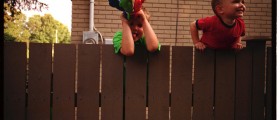


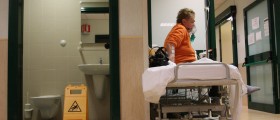
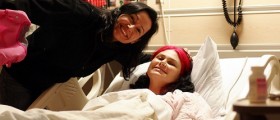



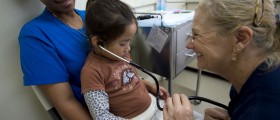
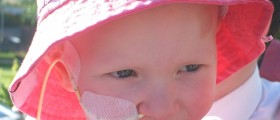
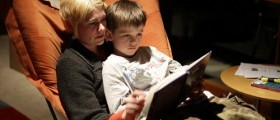


Your thoughts on this
Loading...